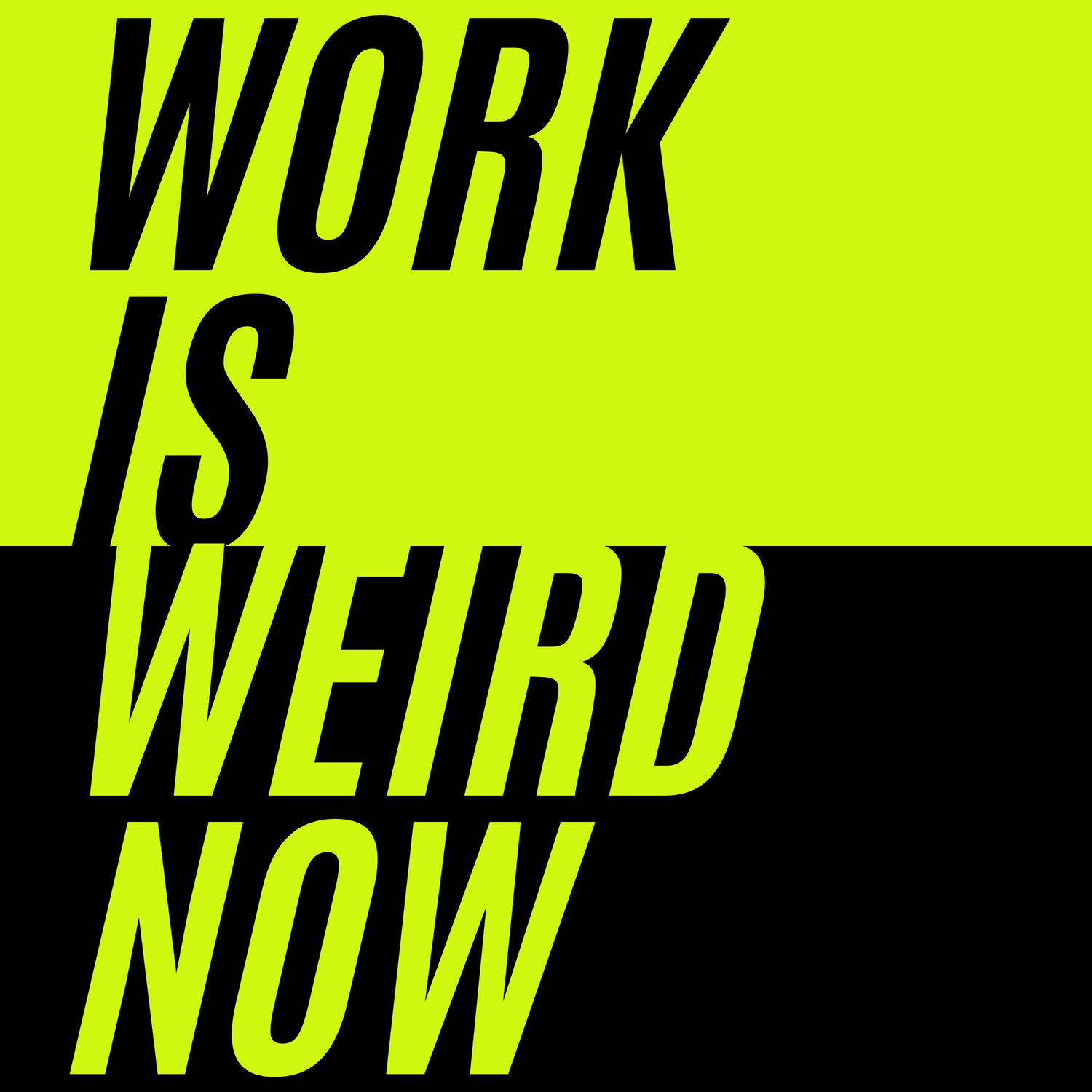When is work therapy?
We brought back one of our most popular guests this week: Simon Lamb, founder of Purposeful Change and expert in the human side of organisational transformation.
This time, we tackled a question that sounds odd on the surface but feels deeply relevant right now:
“When is work… therapy?”
Because let’s be honest: the lines between coaching, therapy, leadership development, and personal growth are blurring fast. Many of us have found ourselves in workplace conversations that dig way deeper than deliverables: unpacking limiting beliefs, confronting family patterns, or reevaluating identity. But is that… okay? Helpful? Dangerous?
Here’s what we explored.
Therapy vs Therapeutic
Simon made a key distinction right up front: coaching can be therapeutic, but it’s not therapy.
He asks a simple question to draw the line:
“Is this exploration in service of your leadership?”
If yes, it belongs in the coaching space.
If it’s about healing old wounds for their own sake? Time to call in a trained therapist.
That doesn’t mean leadership work doesn’t touch deep stuff. It does. Because as Simon puts it:
“We leak. Who you are at home shows up at work — whether you like it or not.”
Work as the New Mirror
Some of the most powerful breakthroughs do happen in a work context, because that’s where our behaviours get tested, our triggers show up, and our values get put under pressure.
Simon gave an example from a real coaching session:
A high-performing leader realized her impatience with “lazy” colleagues was rooted in a voice from her childhood: her father’s repeated refrain: “Don’t be lazy.” That unconscious belief was shaping how she led others.
That kind of insight is not about therapy; it’s about better leadership. But the outcome can still be healing.
Vulnerability, Safety & the Hangover
We also got honest about the vulnerability hangover: that post-workshop shame spiral when you’ve shared a little too much.
Alice described it perfectly: the late-night “why did I say that?!” anxiety. Simon reframed it:
“That’s not a sign you did something wrong. It’s a sign of an unmet need for psychological safety and post-event support.”
His solution? Never make self-exploration a one-off. Support it with coaching, learning groups, and structured reflection.
And ideally? Don’t do it in front of your boss.
Coaching is Not a Loophole for Therapy
One important call-out: Some senior leaders are resistant to therapy and try to turn coaching into a pseudo-substitute.
Simon is crystal clear: coaches must hold the boundary.
This isn’t about fixing people. It’s about building capacity. And sometimes, the best coaching move is saying: “You need a different kind of support right now.”
Awareness, Intention, Discipline
Simon shared a simple but powerful framework for personal and leadership growth:
Awareness: Know your triggers, patterns, and beliefs.
Intention: Choose what kind of leader, and human, you want to be.
Discipline: Build the habits that support that vision, even when it’s hard.
That hard bit? It matters.
“Struggle is part of the process. You don’t build muscle by avoiding the work.”
What Does AI Have to Do With It?
Well, everything.
Because AI makes it easy to outsource the work of work, and that includes the messy, joyful, frustrating act of creation.
Simon’s concern isn’t just about job loss. It’s about losing the muscle of human breakthrough thinking.
He’s hopeful, but clear that we need to double down on our uniquely human capacities:
Deep reflection
Emotional awareness
Purposeful discomfort
Curiosity and choice
Final Thought: Adaptive Leaders Needed
If there’s one message we took from this conversation, it’s this:
The future will belong to adaptive leaders who can sit in the discomfort of uncertainty and keep asking better questions, of themselves and their systems.
And as Simon reminded us, work might not be therapy, but when done right, it can be one hell of a mirror.
🎧 Listen now: When Is Work Actually Therapy? — with Simon Lamb
👤 Find Simon at purposefulchange.com or on LinkedIn
